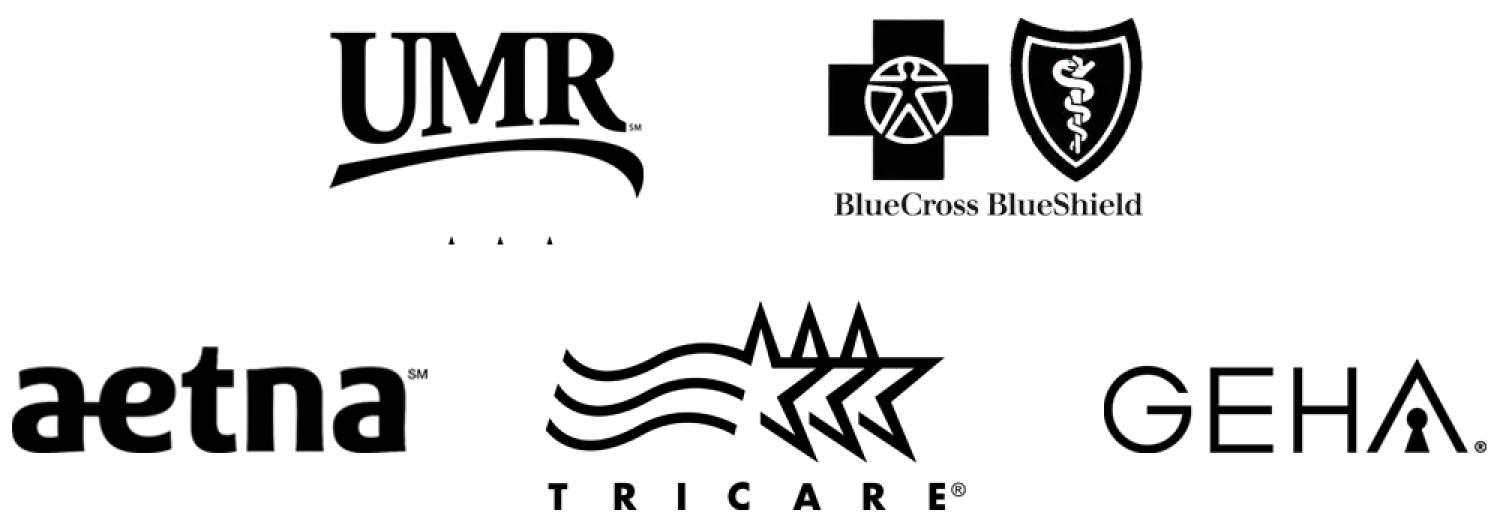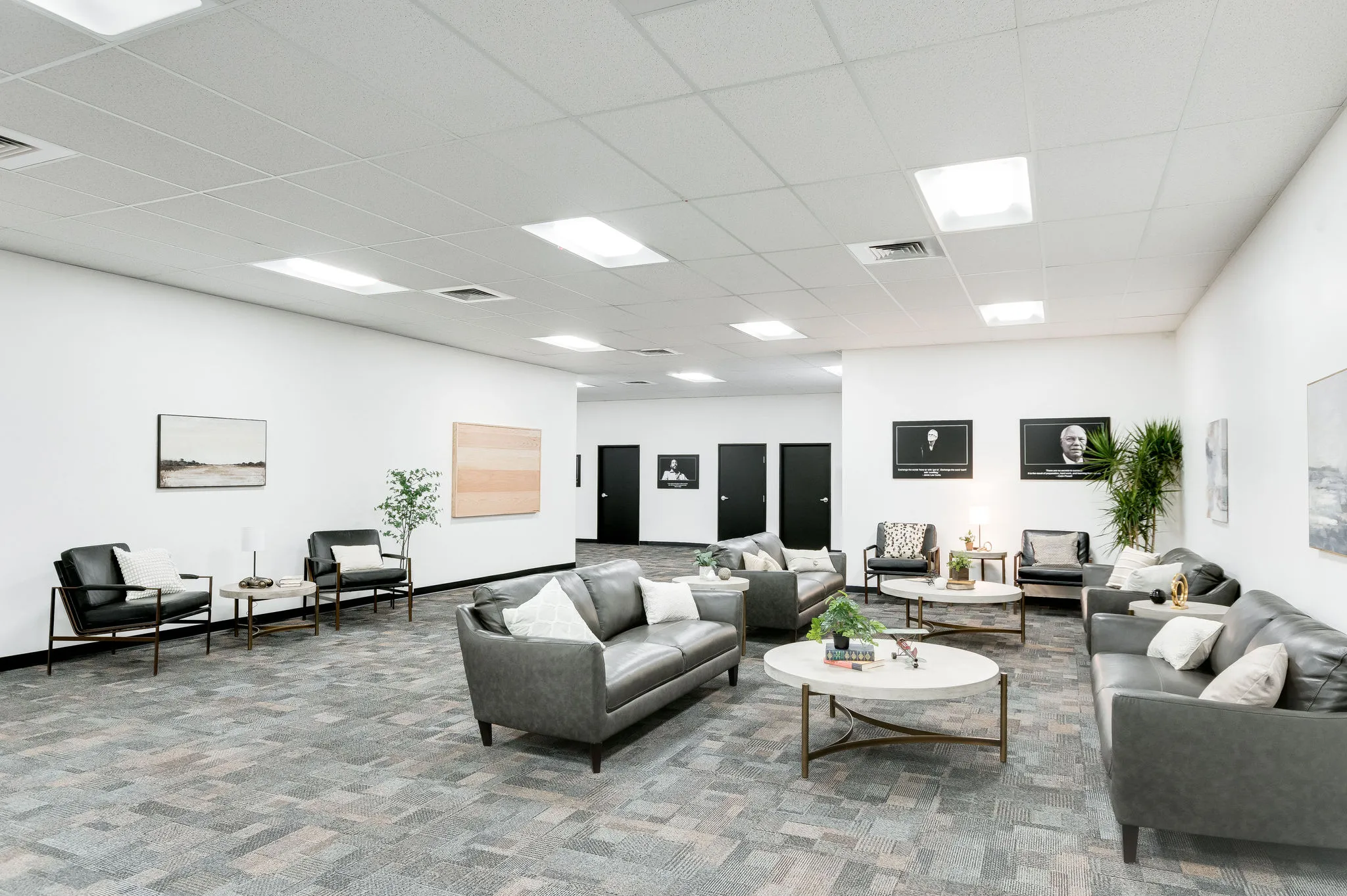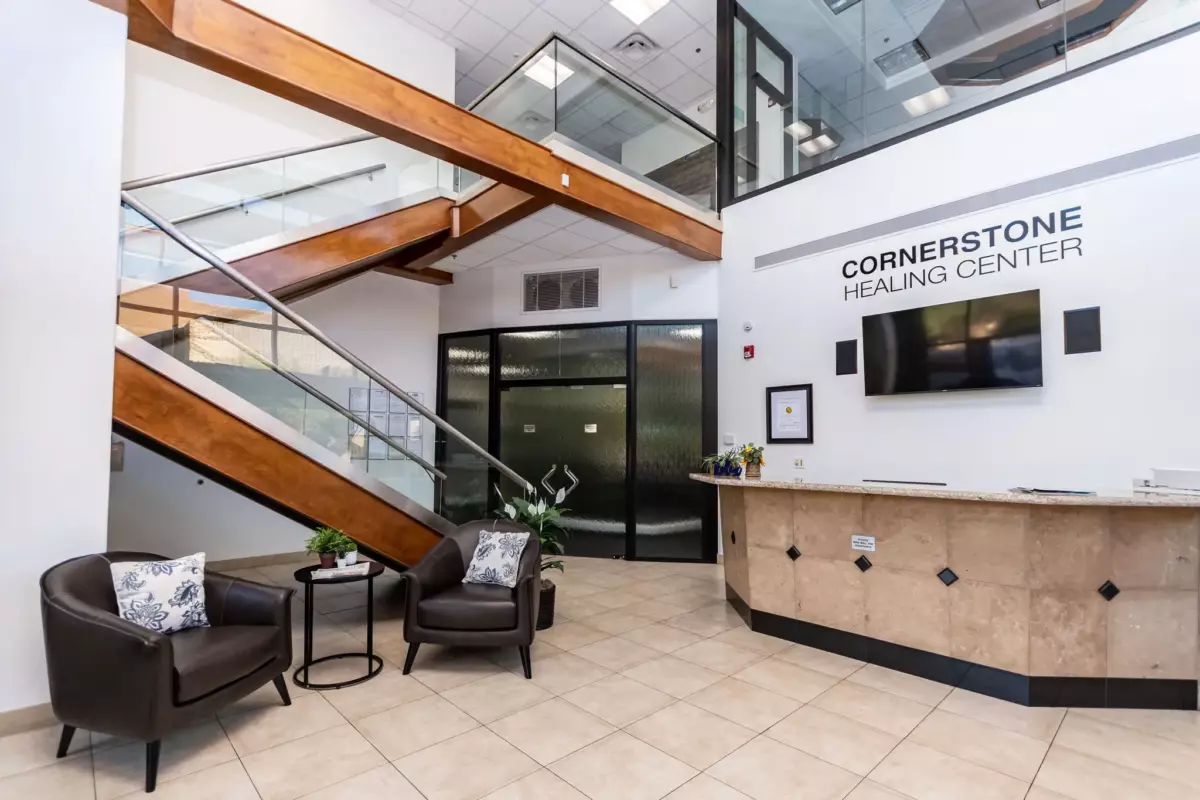Cornerstone
Understanding Carelon Drug Treatment Coverage
Learn about using your Carelon insurance policy to cover substance abuse treatment
Alcohol and Drug Treatment Coverage with Carelon
If you or someone you know is struggling with addiction, having the right insurance coverage can make a significant difference in accessing the necessary treatment.
Carelon Insurance, formerly known as Beacon Health Options, provides coverage for various substance abuse treatment services.
This guide will help you understand the ins and outs of Carelon’s drug treatment coverage to make well-informed decisions about your care, covering essential topics such as network coverage, claims approval, types of plans, deductibles, and hardships.
By familiarizing yourself with your Carelon benefits, you’ll be better prepared to take the first steps toward recovery and a healthier, substance-free future.
Jump to the following sections
View our addiction treatment locations
Addictions we treat at Cornerstone
Carelon drug treatment coverage
In-Network
Out-of-Network
When considering addiction treatment, it’s essential to understand the advantages and disadvantages of choosing an in-network provider with your Carelon insurance policy. In-network treatment centers have a contractual agreement with Carelon, which often means lower out-of-pocket costs for you.1
These providers have negotiated rates with the insurance company, resulting in reduced copays, coinsurance, and deductibles. However, the trade-off is that you may have limited options when choosing a specific treatment center or location. Researching and ensuring that the in-network facility offers the type of care and services that best suit your needs is crucial.
Opting for an out-of-network treatment center using your Carelon policy comes with its own set of pros and cons. On the one hand, you have a wider selection of facilities, allowing you to prioritize factors such as location, specialization, and treatment philosophy. This flexibility can be particularly valuable if you seek a specific care or environment.
However, the financial implications of going out-of-network can be significant. You may face higher deductibles, copays, and coinsurance rates, and in some cases, you might be responsible for the entire cost of treatment. When considering an out-of-network provider, it’s important to weigh the potential benefits against the financial burden.
Information about Carelon Plan Types
Health Maintenance Organization (HMO)
Carelon’s HMO plans typically require choosing a primary care physician (PCP) who coordinates your care and refers you to specialists when needed.2
In most cases, HMO plans only cover treatment from in-network providers, except in emergencies.
While HMO plans often have lower monthly premiums and out-of-pocket costs, they offer less flexibility regarding provider choice.
Preferred Provider Organization (PPO)
PPO plans offered by Carelon provide more flexibility than HMO plans.
You can generally receive care from both in-network and out-of-network providers, although choosing an in-network provider typically results in lower out-of-pocket costs.
With a PPO plan, you don’t need to select a PCP or obtain referrals to see specialists.
Exclusive Provider Organization (EPO)
Carelon’s EPO plans blend features of HMOs and PPOs. Like HMOs, EPO plans typically don’t cover out-of-network care except in emergencies.
However, like PPOs, you usually don’t need to choose a PCP or get referrals for specialist care. EPO plans often have lower monthly premiums compared to PPO plans.
Point of Service (POS)
Carelon’s POS plans combine aspects of HMO and PPO plans.
You’ll need to select a PCP who coordinates your care, but you can see out-of-network providers if you’re willing to pay higher out-of-pocket costs.
Seeing in-network providers or obtaining a referral from your PCP generally results in lower costs.
High Deductible Health Plan (HDHP)
Carelon’s HDHP plans feature lower monthly premiums but higher deductibles than other plan types.
These plans can be paired with a health savings account (HSA) to help cover out-of-pocket expenses.
Once you meet your deductible, your plan starts sharing the cost of covered services.
Medicaid & Medicare Plans
Carelon also offers managed care plans for Medicaid and Medicare beneficiaries.3
These plans are designed to coordinate care and provide additional benefits beyond what’s typically covered by standard Medicaid and Medicare programs.
Eligibility and coverage details vary by state and plan type.
Understanding Policy Terminology
Deductible
Co-Insurance
Out-of-Pocket Max
A deductible is the amount you pay for covered health care services before your Carelon insurance plan starts to pay. For example, if your plan has a $1,000 deductible, you must pay the first $1,000 of covered services yourself.
Once you’ve met your deductible, your insurance will share the cost of covered services according to your plan’s coinsurance or copayment requirements. It’s important to note that some plans may have separate deductibles for in-network and out-of-network care, and not all services may be subject to the deductible.
Co-insurance is the percentage of the cost you pay for a covered healthcare service after you’ve met your deductible. For instance, if your Carelon plan has a 20% coinsurance and you’ve already met your deductible, you’ll pay 20% of the allowed amount for a covered service while your insurance pays the remaining 80%.
Coinsurance percentages can vary depending on the type of service and whether you receive care from an in-network or out-of-network provider.
The out-of-pocket max, or the out-of-pocket limit, is the most you’ll have to pay for covered healthcare services in a plan year. This includes your deductibles, coinsurance, and copayments. Once you reach your out-of-pocket max, your Carelon insurance plan will pay 100% of the allowed amount for covered services for the remainder of the plan year.
Like deductibles, some plans may have separate out-of-pocket limits for in-network and out-of-network care. Understanding your plan’s out-of-pocket max is crucial, as it provides a safety net against high medical costs.
Carelon Approval Process for Treatment
Verification
Submission
Adjudication
Payment
Appeal
Before beginning addiction treatment, the first step is to verify your Carelon insurance coverage. The treatment center you choose will contact Carelon to confirm your active policy and determine the specifics of your coverage, such as deductibles, copayments, and coinsurance. They will also inquire about any prior authorization requirements for the services you need.
Once your coverage is verified, the treatment center will inform you of any out-of-pocket expenses you may be responsible for, helping you understand what amount you will have to pay (if any) to get treatment. To streamline this process, you can provide your insurance information to the treatment center in advance.
After you receive treatment services, the treatment center will submit a claim to Carelon on your behalf. This is part of the claims process, where the treatment center provides detailed information about the services provided, such as the dates of treatment, the types of services rendered, and the associated costs.
The treatment center’s billing department will handle the claims submission process, ensuring that all necessary documentation is included and the claim is submitted promptly. In most cases, claims are submitted by the treatment center you choose, allowing you to focus on your recovery while they handle the administrative tasks.
Once Carelon receives the claim from the treatment center, they will review it to determine if the services provided are covered under your plan. This process is called adjudication.
During adjudication, Carelon will verify that the services were medically necessary, that an eligible provider provided them, and that they fall within the terms of your coverage. If the claim meets all the necessary criteria, Carelon will approve the claim and proceed with payment.
If your claim is approved during adjudication, Carelon will issue payment to the treatment center according to your plan’s coverage terms. This payment will be made directly to the treatment center, and you will be responsible for any remaining out-of-pocket expenses, such as deductibles, copayments, or coinsurance.
The treatment center will then bill you for these remaining costs. Understanding your financial responsibilities before beginning treatment is important to avoid any surprises down the road.
If your claim is denied during adjudication, the treatment center’s billing department will typically file an appeal on your behalf. Treatment centers are well-versed in handling denials and will do their best to ensure that denied services are eventually paid. If necessary, they will gather additional documentation and present a strong case to Carelon for why the denied services should be covered.
It’s worth noting that treatment centers generally strive to provide only those services that are likely to be approved by your insurance, minimizing the risk of denial. However, if a denial does occur, you can trust that the treatment center’s billing department will work diligently to resolve the issue and secure payment for the services you received.
Get Help Paying Your Deductible
File a Hardship With Carelon
If you struggle to pay your deductible, you can file a hardship with Carelon. A hardship is a situation that prevents you from being able to afford your medical expenses, such as job loss, unexpected expenses, or a severe illness. To file a hardship claim, you must contact Carelon directly and provide documentation of your financial situation. If approved, insurance may reduce your deductible or offer a payment plan to help make your treatment more affordable.
Assistance Programs & Payment Plans
Many addiction treatment centers offer assistance programs and payment plans to help make treatment more accessible. These programs may include sliding-scale fees based on income, scholarships, or financing options. Some treatment centers may also have relationships with third-party lenders specializing in providing medical expense loans. When considering a treatment center, ask about any available assistance programs or payment plans to help you manage your out-of-pocket costs.
Community Resources & Charitable Organizations
In some cases, community resources and charitable organizations may be able to help you cover your deductible for addiction treatment. These organizations may include local non-profits, faith-based groups, or foundations dedicated to helping individuals access healthcare services. Some organizations may have specific programs to assist with addiction treatment costs, while others may provide more general financial assistance. It’s worth researching local organizations in your area to see if they offer any help with treatment expenses.
FAQs About Using Carelon Benefits to Pay for Alcohol and Drug Treatment
What types of addiction treatment does Carelon cover?
Carelon health insurance offers a variety of services for addiction treatment, with coverage details dependent on your specific plan and geographic location.
Coverage often includes:
- Detoxification: Assistance during detox to help safely manage withdrawal symptoms.3
- Inpatient Rehabilitation: Provides therapy, medical care, and support within a residential setting.
- Outpatient Rehabilitation: Enables treatment while living at home, incorporating therapy and group meetings.
- Partial Hospitalization Programs (PHP): Offers intensive treatment on a daily basis, serving as an intermediary step between inpatient and outpatient care.
- Intensive Outpatient Programs (IOP): A less intensive option than PHP, focusing on recovery skills and therapy for a few hours each day.
- Counseling and Therapy: Access to individual, group, and family sessions to tackle the behavioral challenges of addiction.
Reviewing your Carelon insurance benefits is essential to understand the coverage for different treatment options, including any limitations or prerequisites, and how to utilize these services effectively.
If you need help, our Cornerstone team understands insurance policies and can immediately begin reviewing your benefits once you verify your insurance with us!
Will I need to get pre-authorization for addiction treatment?
In many cases, you will need to obtain pre-authorization from Carelon before starting addiction treatment.
This means that Carelon will review your case to determine if the proposed treatment is medically necessary and covered under your plan.
Your chosen treatment center can typically help you navigate the pre-authorization process.
How much will I have to pay out-of-pocket for addiction treatment?
Your out-of-pocket costs for addiction treatment will depend on your specific Carelon plan.
Factors that can impact your costs include your deductible, copayments, coinsurance, and out-of-pocket maximum.
You can contact Carelon or your treatment center to get a better understanding of your potential out-of-pocket expenses.
What happens if Carelon denies my claim for addiction treatment?
If Carelon denies your claim for addiction treatment, your treatment center will likely file an appeal on your behalf.
The appeals process allows the treatment center to provide additional information and argue why the services should be covered.
If the appeal is successful, Carelon may reverse its decision and provide coverage for the treatment.
Sources
CLINICALLY REVIEWED

Lionel Estrada, LISAC
CLINICAL DIRECTOR
Lionel, our Clinical Director is a Licensed Independent Substance Abuse Counselor (LISAC) with over 4 years at Cornerstone, specializes in addiction and mental health. Trained in EMDR therapy, he employs a trauma-informed, empathetic approach to address the underlying causes of these issues.
- Read our Editorial Policy
Still have questions about treatment?
Our admissions specialists are here to explain the process, answer any questions you may have, and ensure you’re getting the help you need to live a healthy life free from addiction.























